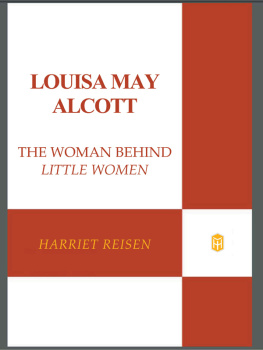Bibliographical Note
This Dover edition, first published in 2006, is an unabridged republication of the work originally published in 1863 by James Redpath, Publisher, Boston, under the title Hospital Sketches by L. M. Alcott. The Introductory Note is excerpted from Louisa May Alcott: Her Life, Letters, and Journals, Chapter Seven (Hospital Sketches), edited by Ednah D. Cheney, first published in 1889 by Roberts Brothers, Boston.
9780486138176
Manufactured in the United States by Courier Corporation
44900903
www.doverpublications.com
Introductory Note
EDNAH D. CHENEY
M ISS Alcott could not help feeling deeply the excitement of the hour when the war broke out. Her father had been one of the earliest Abolitionists, having joined the Antislavery Society with Garrison, and she well remembered the fugitive slave whom her mother had hidden in the oven. Now this feeling could be united with her patriotic zeal and her strong love of active life, and it was inevitable that she should long to share personally in the dangers and excitement of the war.
Louisa had always been the nurse in the family, and had by nature the magnetic power which encourages and helps the feeble and suffering; therefore, since no other way of serving the cause opened to her, it was most like her to take her own life in her hands and join the corps of devoted nurses. She was accepted, and went to Washington. Her journal gives an account of her situation in the Union Hospital at Georgetown. It was a small hospital, much inferior in its appointments to those which were afterward arranged. Although Louisa had never been very ill up to that time, and thought herself exceptionally strong, yet she had not the rugged constitution fit to bear the labors and exposures of such a position; and the healthful habits of outdoor life and simple food to which she had always been accustomed made the conditions of the crowded, ill-ventilated hospital peculiarly perilous to her. She says, I was never ill before this time, and never well afterward.
But with all its hardships, Miss Alcott found in the hospital the varied and intense human life she had longed to know. Her great heart went out to all the men, black or white, the Virginia blacksmith and the rough Michigander. She even tried to befriend the one solitary rebel who had got left behind, and who was taken into the hospital to the disgust of some of the men; but he was impervious to all kindness, and she could find nothing in him for sympathy or romance to fasten upon.
Miss Alcott remained in the hospital only about six weeks. Yet this short period had a very strong influence, both for good and evil, on her future life. The severe attack of fever which drove her from her post left her with shattered nerves and weakened constitution, and she never again knew the fullness of life and health which she had before. The chamber in her quiet home at Concord was evermore haunted by the fearful visions of delirium, and she could not regain there the peace she needed for work. But the experience of life, the observation of men under the excitement of war, the way in which they met the great conqueror Death, the revelations of heroism and love, and sometimes of bitterness and hate, brought her a deeper insight into human life than she ever had before, and gave to her writings greater reality.
Louisa constantly wrote to the family of her experiences, and these letters were so interesting that she was persuaded to publish them in the Commonwealth newspaper. They attracted great attention, and first made her widely and favorably known to a higher public than that which had read her stories....
Hospital Sketches were hastily written, and with little regard to literary execution, but they are fresh and original, and, still more, they are true, and they appeared at just the time the public wanted them. Every heart was longing to hear not only from field and camp, but from the hospitals, where sons and brothers were tenderly cared for. The generous, hopeful spirit with which Miss Alcott entered into the work was recognized as that which animated the brave corps of women who answered so promptly to their countrys call, and every loyal and loving heart vibrated in unison with the strings she touched so skillfully.
THESE SKETCHES ARE RESPECTFULLY DEDICATED TO HER FRIEND MISS HANNAH STEVENSON, BY L. M. A.
Publishers Advertisement
A considerable portion of this volume was published in successive numbers of The Commonwealth, newspaper, of Boston. The sudden popularity the Sketches won from the general public, and the praise they received from literary men of distinguished ability, are sufficient reasons,were any needed,for their re-publication, thus revised and enlarged, in this more convenient and permanent form. As, besides paying the Author the usual copyright, the publisher has resolved to devote at least five cents for every copy sold to the support of orphans made fatherless or homeless by war, no reproduction of any part of the contents now first printed in these pages, will be permitted in any journal. Should the sale of the little book be large, the orphans percentage will be doubled.
BOSTON, August, 1863.
I
Obtaining Supplies
I want something to do.
This remark being addressed to the world in general, no one in particular felt it their duty to reply; so I repeated it to the smaller world about me, received the following suggestions, and settled the matter by answering my own inquiry, as people are apt to do when very much in earnest.
Write a book, quoth the author of my being.
Dont know enough, sir. First live, then write.
Try teaching again, suggested my mother.
No thank you, maam, ten years of that is enough.
Take a husband like my Darby, and fulfill your mission, said sister Joan, home on a visit.
Cant afford expensive luxuries, Mrs. Coobiddy.
Turn actress, and immortalize your name, said sister Vashti, striking an attitude.
I wont.
Go nurse the soldiers, said my young brother, Tom, panting for the tented field.
I will!
So far, very good. Here was the willnow for the way. At first sight not a foot of it appeared, but that didnt matter, for the Periwinkles are a hopeful race; their crest is an anchor, with three cock-a-doodles crowing atop. They all wear rose-colored spectacles, and are lineal descendants of the inventor of aerial architecture. An hours conversation on the subject set the whole family in a blaze of enthusiasm. A model hospital was erected, and each member had accepted an honorable post therein. The paternal P. was chaplain, the maternal P. was matron, and all the youthful P.s filled the pod of futurity with achievements whose brilliancy eclipsed the glories of the present and the past. Arriving at this satisfactory conclusion, the meeting adjourned, and the fact that Miss Tribulation was available as army nurse went abroad on the wings of the wind.
In a few days a townswoman heard of my desire, approved of it, and brought about an interview with one of the sisterhood which I wished to join, who was at home on a furlough, and able and willing to satisfy all inquiries. A morning chat with Miss General S.we hear no end of Mrs. Generals, why not a Miss?produced three results: I felt that I could do the work, was offered a place, and accepted it, promising not to desert, but stand ready to march on Washington at an hours notice.



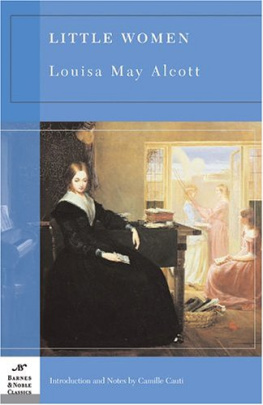
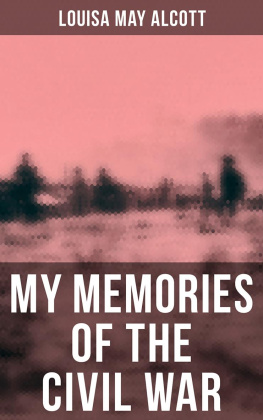
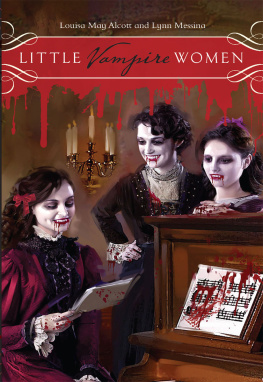

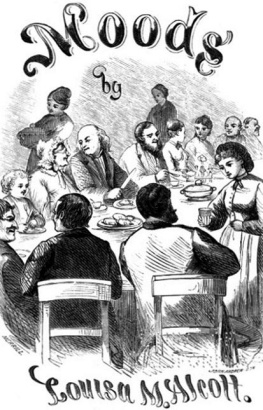
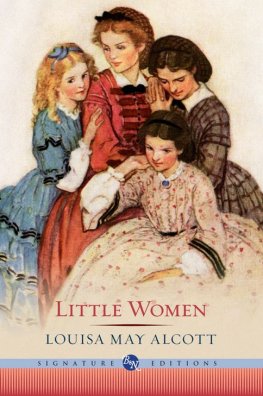


![Alcott - Louisa May Alcott: [a personal biography]](/uploads/posts/book/163779/thumbs/alcott-louisa-may-alcott-a-personal-biography.jpg)
